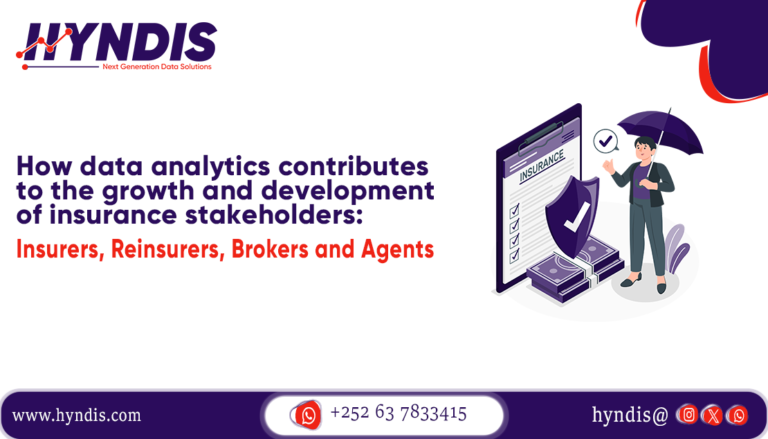How data analytics contributes to the growth and development of insurance stakeholders

Data analytics is important for the progress and task automation of different insurance stakeholders separately. Insurance stakeholders, including insurers, reinsurers, brokers, and different agents, can use distinct data analytics techniques and tools to go with the digital transformation. In this article, we will explain in detail the importance of data analytics for insurance stakeholders.
Insurers
Data analytics allows insurers to analyze large amounts of historical data to assess the expected risks in the future. This technique is leading to the development of policies to reduce that risk. On the other hand, machine learning algorithms can determine patterns in the datasets to allow for making data-driven decisions.
Insurers can use data analytics to separate their customers into segments and personalize them. After knowing the different customer behaviors and preferences, insurers can figure out the service that is meeting the customer’s needs. Advanced analytics techniques, such as predictive analytics, can help insurers identify the expected fraud in the future. Therefore, this method saves a lot of resources for insurers.
Finally, data analytics can help the overall efficiency of insurers by using natural language processing techniques to improve claim processing and efficiency.
Reinsurers
Data analytics helps reinsurers manage a vast amount of data from diverse insurers; it also facilitates managing datasets that include claim records from structured or unstructured data. By analyzing historical data, reinsurers can predict the probability of various events leading to strategic decisions that improve the company’s reputation and use resources effectively.
To develop risk pricing strategies, reinsurers must have a large amount of data, such as geospatial information, historical lost data, and demographics. By using the right skills and tools for those patterns, it is simple to develop risk mitigation strategies for reinsurers. To remain competitive in the industry, reinsurers should use data analytics to get information about market trends and emerging risks.
Insurance Brokers
To decide the best insurer to partner with, insurance brokers should use data analytics to understand more about the market trend and performance of different insurance companies. Without using data analytics, it will cost a lot for brokers to survive in the competitive world. Therefore, insurance brokers can use insights from data to understand more about market dynamics and gaps to cover.
Data analytics helps insurance brokers with customer relationship management by analyzing historic data about customers to understand customer satisfaction levels and develop customer retention strategies. On the other hand, data analytics helps insurance brokers determine specific techniques for cross-selling insurance products to existing clients.
Insurance Agencies
By analyzing policies, transactions, and customer interaction, insurance agents can monitor the compliance of different customers. By introducing new systems of reporting and automation and using machine learning techniques, insurance agencies are able to manage regulatory compliance.
On the other hand, by analyzing the relevant information, such as client demographics and customer behavior, insurance agencies are able to identify the businesses or individuals that might be interested in the insurance products. Therefore, by using predictive models, insurance agents can forecast the expected leads.
Related Posts
-
01 Nov 2023How data analytics contributes to the growth and development of insurance stakeholders: Insurers, Reinsurers, Brokers and Agentsfourth
-
01 Nov 2023Three Ways Data Analytics Improve Personalised Medicine
-
01 Nov 2023The Crucial Role of BI in Insurance Risk Management
-
22 Oct 2023Exploring The Power of Data Science

